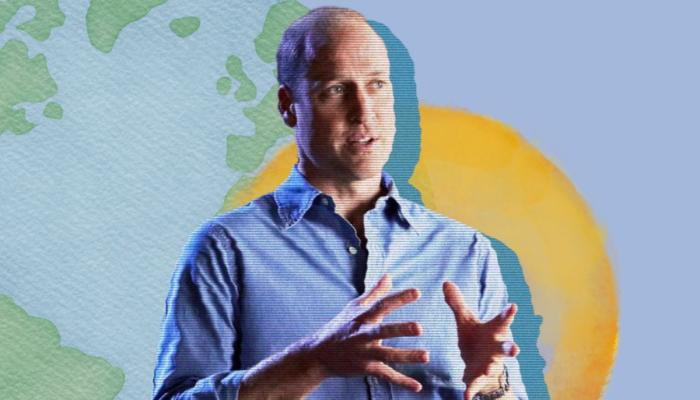Prince William wants to fix the climate crisis that his own family helped create
Prince William's family’s wealth comes from a world carved up to feed Britain’s hunger for resources
Prince William has spent the last few years trying on a new public identity: the steady, responsible future king who will help shepherd the world through the climate crisis.
He travels, hosts polished award ceremonies, sits with innovators whose ideas could genuinely change the world. Speaks in that calm, almost soothing tone that suggests he has already accepted his duty.
There’s nothing wrong with caring about the climate. But it’s hard to watch a Windsor step into this role without noticing the enormous shadow behind him, that never appears in his speeches, but shapes every part of this conversation.
Climate change did not emerge from a vacuum. It is the outcome of centuries of extraction, industrial expansion, and political decisions that reorganized the planet for profit.
And for a long stretch of modern history, the British Empire was one of the major architects of that reorganization.
It feels strange, then, to see the future king of that empire framed as a climate visionary.
The royal family’s wealth comes from a world carved up to feed Britain’s hunger for resources: timber, minerals, metals, agricultural land, waterways, coastlines, ports.
Entire regions were reshaped so that raw materials flowed out and profit flowed in. These were structural interventions, that altered ecosystems, labour systems, and political borders.
Some of the environmental instability we’re living through today is directly linked to those interventions.
Yet none of this history appears in William’s climate messaging. He talks about “our shared responsibility,” as though the wolrd arrived at this moment in equal condition.
But the climate crisis isn’t equal, and never has been. Some countries enriched themselves through extraction and now have the capacity to adapt.
Others were extracted from and now sit on the frontlines with far fewer resources to cope. Many of those same regions, coastal South Asia, parts of Africa, the Caribbean, were once central to the British imperial economy.
William’s Earthshot Prize celebrates solutions. And some of those solutions are genuinely impressive. But a prize can’t fill in the silence around the past.
The project is framed as a grand, hopeful mission to repair the planet, but it avoids the uncomfortable truth that Britain, and by extension the Crown, played a role in breaking it.
This is the quiet tension running underneath all the applause: can the monarchy lead on climate without acknowledging the empire that built it?
William himself often feels like he’s been cast in a part he believes he can play well. And maybe he can. But the script is incomplete. It requires him to speak as though history is a distant abstraction rather than the foundation of his own institution.
It requires separating the modern royal brand, clean, compassionate, forward-looking, from the institution’s actual legacy.
That’s the trick the monarchy has always performed: absorbing global admiration while distancing itself from the machinery that created its power.
Climate leadership, though, doesn’t bend that easily. Its a field defined by accountability, by historical memory, by the recognition that responsibility isabout what you’ve already done.
It would be far more interesting, and frankly far more honest, if William used his platform to name the history he inherited. If he talked openly about the environmental damage that accompanied empire. If he acknowledged what Britain owes the places that supplied its wealth. If he recognized that climate justice is not just about innovation, but about restitution, rebalancing, and truth-telling.
That kind of speech would shift the conversation. It would show a level of courage that goes beyond hosting an awards show and would signal that the future king understands climate leadership as more than a branding exercise.
But that would require confronting the reality that the monarchy is not a neutral moral institution. It is a beneficiary of a system that helped set the world on this path.
So while William speaks about the planet’s future, the past remains carefully out of frame. That’s the limitation of his climate role: he can talk about responsibility in abstract terms, but he cannot talk about the source of his own.
And that’s why the whole project, feels dishonest.
The world doesn’t need a royal figurehead to save it. But if William truly wants to lead on climate, he’ll have to do something the monarchy has never been comfortable with: speak plainly about the history that built the Crown and how that history continues to shape the crisis he wants to solve.
Until then, the speeches will keep sounding good. And the silence underneath them will keep getting louder.
